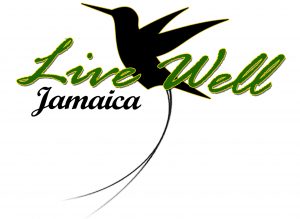
The culture of Jamaica often disallows for young men to be expressive in a safe, non-judgmental space where they can address the traumas they’ve faced. These everyday guys may bury their trauma so deep that symptoms such as panic attack, pain disorders phobias, and addictions seem to come out of nowhere according to menscenter.org. This customary domineering macho practice is not always in the best interest of men. As such, some young men in Jamaica and its surrounding areas seem more prone to withhold from attending therapy to assist them with issues relating to trauma and other mental health issues.
What will be the outcome when these concealed emotions finally manifest?
To investigate the matter four women from different parishes in Jamaica created ‘His(Tory): Normalize Therapy for Young Men’, a digital communication campaign. Abigail Gordon; an online English tutor, Kriss-Ann Haughton; a recent graduate of the University of Technology Jamaica who is a mental health enthusiast, Kay-Ann Ford; an administrative assistant who is passionate about mental health, and Sashoi Nichols; a current student at The University of the West Indies who is a mental health workshop & seminar coordinator initiated this campaign in March 2021.
Trauma affects individuals in different ways and each person deals with the situation differently. For instance, when some women will find a friend or seek therapy to help them recover from traumatic experiences or mental health problems; men on the other hand tend to shy away from seeking help, rather choosing to express themselves through anger, violence, or substance abuse.
This campaign seeks to promote normalizing the concept of resolving traumas in Jamaican young men between the ages 18-25 years. It further speaks to remove the stigma attached to young men seeking out therapy as an option to help them bounce back from a traumatic experience.

It is our aim to dismantle the myth that purports weakness in a man’s attempt to seek therapy and further foster healthy relationships with themselves and with whom they interact.
To gain more insight on how trauma affects young men, I spoke with Mrs. Venisa Clarke-Lee who is a Sociologist and Human Services professional for a little over 5 years. She shed some light on this problem area.
Since men conceal their feelings, what are some signs to look for?
Mrs. Clarke-Lee stated that some signs to look for in men suffering from trauma are:
- Withdrawals (from substance abuse)
- Anger
- Aggression
- Transference
- Anxiety
She stated that what she finds most effective over the years is getting these young men involved in activities such as sports, exercise, volunteering in the community, etc and surrounding themselves with individuals who will guide, monitor, and mentor them. Thus, helping them to begin the healing process. She says that these young men especially those from single-parent households want to have a sense of belonging, so being involved in structured activities especially in their community is a huge plus for them in developing positive habits which in turn, will help them heal from the trauma they suffered.
Some other positive habits that Mrs. Clarke-Lee mentioned are:
- Being involved in a debate or a form of sport where they can express themselves and discuss issues as well as learn how to win and lose, the importance of teamwork/sportsmanship. These activities will teach them that conflicts can be resolved and they don’t have to bottle up their feelings.
- Reading is an important part of helping these young men talk about the trauma they face and explore ways they can resolve the issues. Doing this will make them feel like they are contributing in a positive way and they are being heard.
- Journaling-Writing down their feelings was another suggestion made by Sociologist Mrs. Clarke-Lee. Young men can write simple things about their feelings. For example, describing themselves in a few words or what is happening with them. This will help them release some of the tension that they have.
- Setting goals is another positive habit that young men can do to help them recover from trauma and will increase their confidence once some smaller goals are achieved.
Also, she pointed out that healing from trauma involves personal empowerment i.e., to become aware of who you are as an individual. Young men need to do a truthful evaluation of who they are, their weaknesses, and their strengths. Afterward, they need to find ways to strengthen the things they are not good at. Taking responsibility for their life will help improve self-esteem and help them recover from the trauma they faced.
Mrs. Clarke-Lee mentioned that humans are thinking, feeling and acting beings. As such, it can be argued that action begins in the mind. For example, some questions to ask oneself who am I at my best? what is my ideal job? What do I want to do?
She states that young men are built differently from young women. They have lots of testosterone and must have different activities to do to let it out such as football, cricket, basketball, etc. This enables them to travel outside their community and see the world from a different perspective which will inspire them to reflect on their behaviour and will motivate them to make changes. Then, maybe in the future, they will visit that country again because of the positive effect it had on them when they first visited.
Having a mentor also plays a major role in dealing with trauma. A mentor can see the individual in a way that the individual wouldn’t see himself/herself and will get them to eventually see they are actually worth something and have a sense of belonging in society.
Men, if you have experienced trauma, you are not alone; no man is an island. Seeking help is the courageous first step to help you bounce back. So, please take that step and begin your healing journey.











